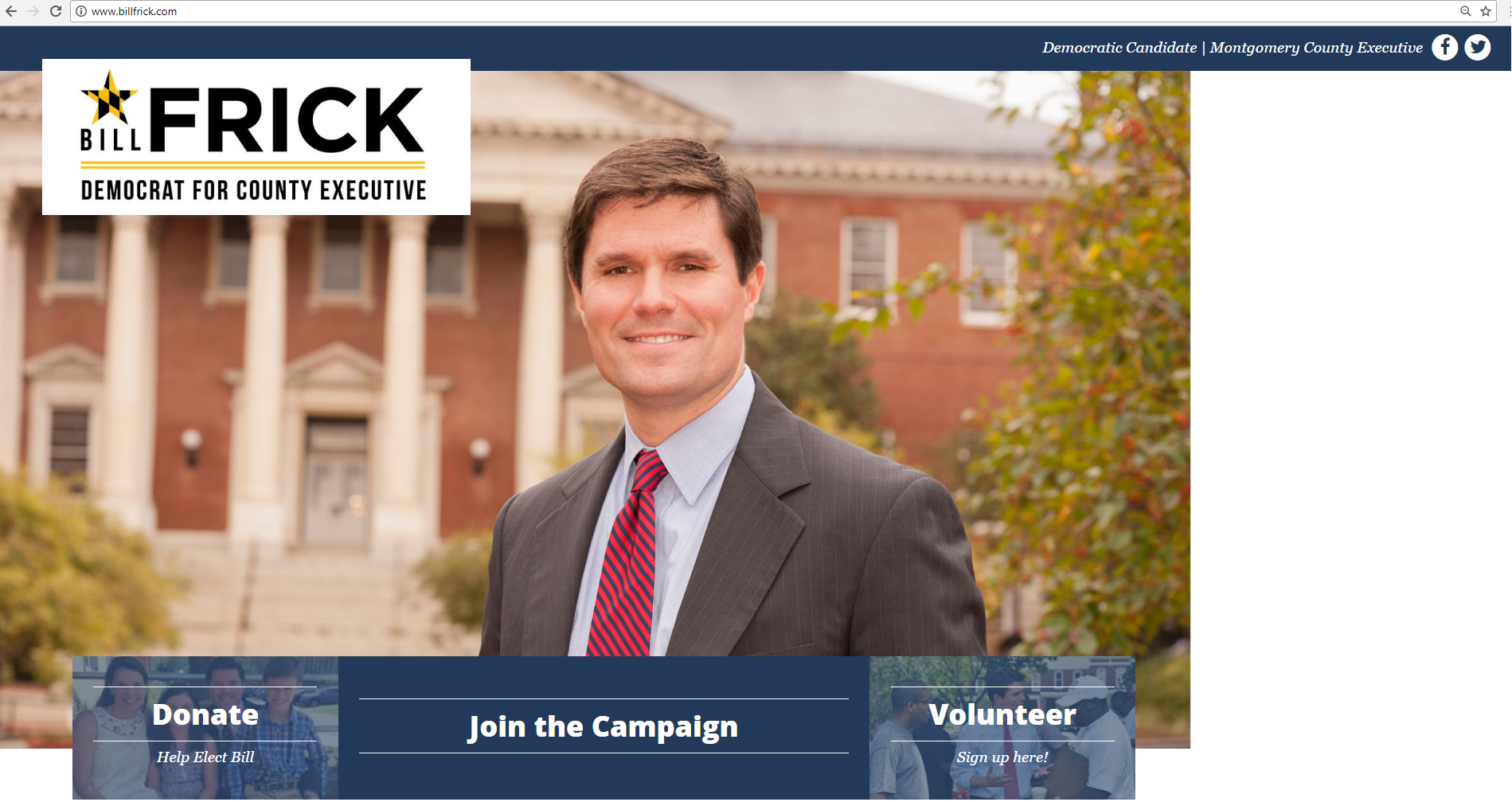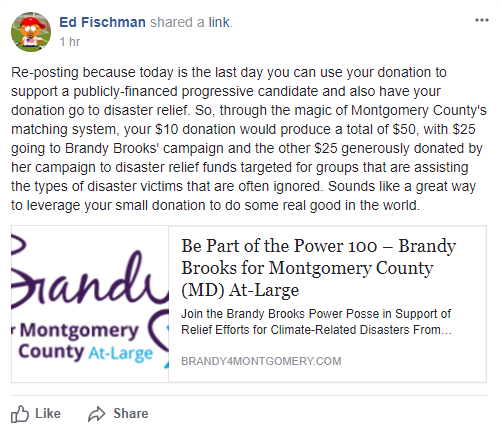Today, Seventh State is pleased to present a guest post by Gabe Albornoz.
Not long after the final results were announced in the 2016 Presidential cycle a sense of frustration and sadness spread through our county and country. There was a documented increase in reported hate crimes. Not even Montgomery County was immune to the hate and bigotry that was spreading across the country. In response to the tension inflicting our community, County Executive Leggett appointed a team of senior officials from his administration to produce an event that reaffirmed Montgomery County values. I was honored to have been appointed to that committee and serve as the emcee for an event that would be called the The Montgomery Way.
The event took place a few weeks after the election on a cold November day on Veterans Plaza. The elements did not stop over a thousand residents from hearing messages of love, tolerance and peace from elected officials, public officials, inter-faith leaders, and students. The Montgomery Way celebrates our diversity and inclusion; promotes economic prosperity for all; ensures the best possible education for all children; and establishes a high quality of life for its residents, especially those most vulnerable. The event reaffirmed everything I love about Montgomery County and played a big role in my decision to run for Elected Office.
I have deep Montgomery County roots as a lifelong resident, a graduate of MCPS and have lived in Gaithersburg, Bethesda, Silver Spring, and now in Kensington with my wife Catherine, also a native of Montgomery County, and our four young children. My parents immigrated from Chile and Ecuador; both attended Montgomery College and instilled in me the value of hard work and to treat everyone with dignity and respect. It is a gift to have been raised here. I believe it is my responsibility, elected or not, to pass its opportunities on to all of our children and future generations.
I have dedicated my career to public service and fighting for just social policies through my work in the non-profit sector and more recently as a member of County Executive Ike Leggett’s cabinet. I have always considered my work as Director of the Department of Recreation, Chair of the Montgomery County Democratic Central Committee and service in other public sector roles to be a privilege.
I have worked to improve the quality of life for County residents by growing our recreational programs, addressing the opportunity gaps among our children through expanded after-school programs, and leading efforts to keep our senior citizens in their homes and active in the community. I have learned much from my hands-on experiences working collaboratively with diverse communities and constituencies and have the skill, passion and perspective to promote respectful engagement and unity in our County.
Maintaining the greatness and opportunity of our County will require commitment and effort, which is why I am running for County Council. We are facing difficult challenges including aging infrastructure, a fast-growing school system, a stretched safety-net struggling to keep pace with the complex needs of our more vulnerable residents, growing economic disparity among communities, difficult traffic challenges and unmet affordable housing needs.
These challenges come as financial support from federal and state governments are at significant risk of being cut and our local fiscal options to respond are limited. What is not limited is this county’s ability to be imaginative, thoughtful and determined in efforts to address our challenges justly, creatively and effectively. I will bring experienced, inclusive and bold leadership to the next County Council as it carries out its role in charting our county’s future.
I believe that elected office is a noble profession and provides a clear and tangible opportunity to impact social change and serve as a bridge between communities and sectors. I intend to work closely with other key public stakeholders including the Board of Education, Planning Board, Executive Branch, State Delegation, Montgomery College and others along with leaders in the Non-profit, Business, LGBTQ, Labor, Faith, Health and Civic Communities to collaboratively address the known and unknown challenges ahead. I humbly seek this office knowing I will follow many other political leaders, among them my current boss, Ike Leggett.
I want to thank my friends, family and especially my wife Catherine and our kids for their incredible support. For the next year, I will meet with residents across the County to better understand your interests, aspirations, and concerns. I invite you to join me on this journey. To learn more, please visit my website www.gabeforcouncil.com.
Gabe Albornoz is running for Montgomery County Council At-Large.




